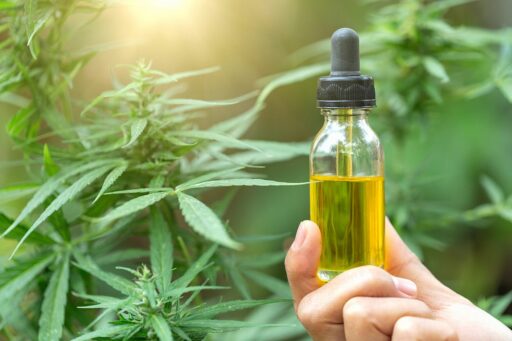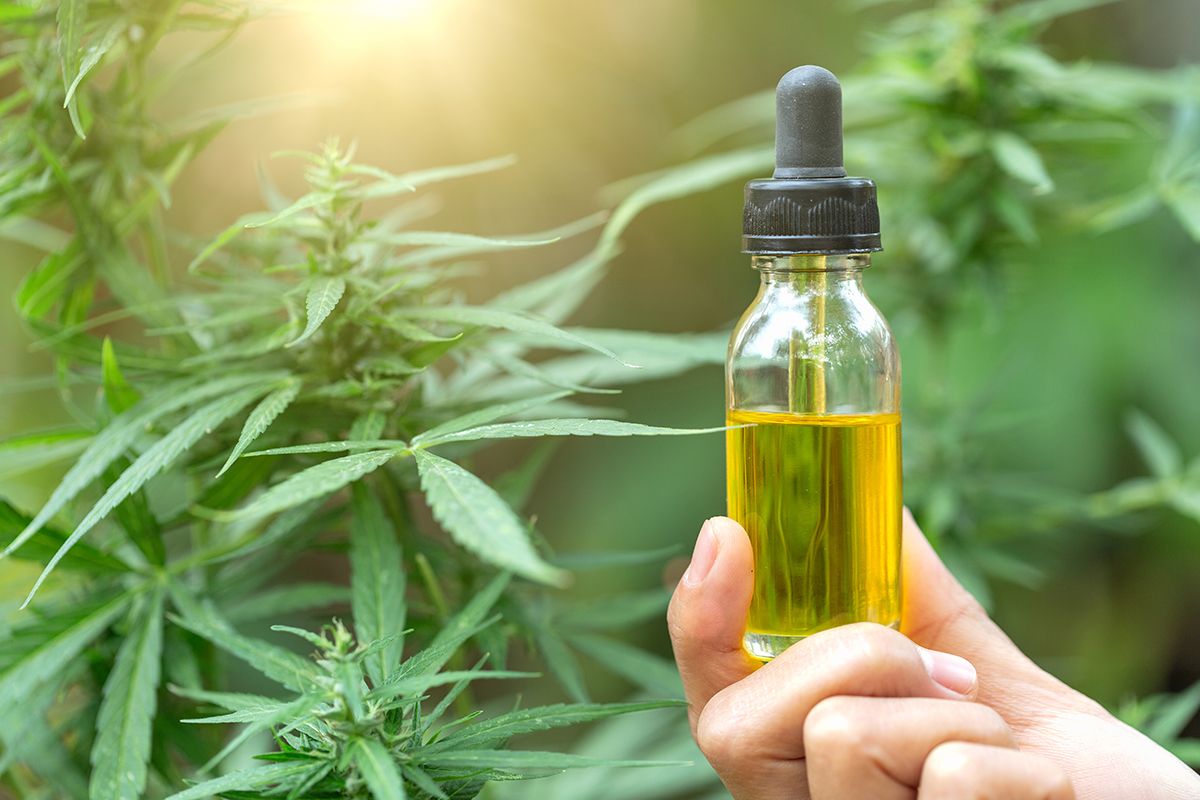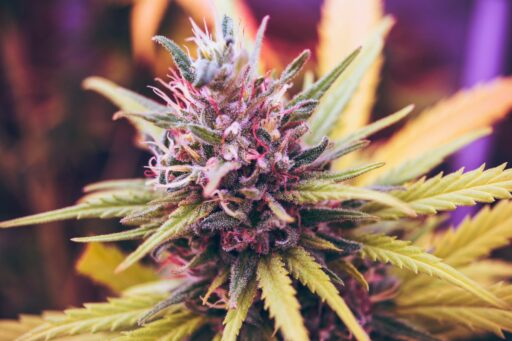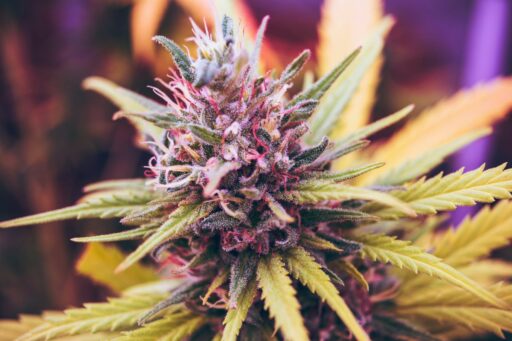Iowa is on the precipice of a significant shift as it moves toward marijuana legalization, joining a national trend that has seen numerous states adopt more liberal cannabis laws. This article, ‘Navigating the Green Wave: Iowa’s March Toward Marijuana Legalization,’ delves into the multifaceted aspects of this journey. It examines the current legal landscape, economic implications, policy changes, social attitudes, and the potential future of marijuana legalization in Iowa.
Key Takeaways
- The debate on marijuana legalization in Iowa is influenced by legislative actions and cultural shifts in neighboring states like Nebraska, Wisconsin, and Minnesota.
- Economic factors such as the Census Bureau’s data collection on cannabis business activity and the impact of financial service bans play a significant role in shaping the market.
- Policy advancements, including federal legislation affecting firearm sales to cannabis consumers and interstate commerce decisions, are pivotal to the national cannabis landscape.
- Social perceptions of cannabis are evolving, with mainstream acceptance growing and educational institutions incorporating cannabis studies into their curricula.
- Iowa’s path to legalization will be informed by the successes and challenges of other states, with public opinion and voter initiatives being key determinants in shaping future policy.
The Current Landscape of Marijuana Legalization in Iowa

Nebraska Advocates Launch Third Medical Cannabis Ballot Initiative Campaign
In a determined effort to reform state laws, Nebraska advocates have initiated their third campaign to legalize medical cannabis. This latest push comes amidst a backdrop of growing support and previous near-successes. The campaign aims to gather enough signatures to place the initiative on the ballot, offering Nebraska voters the chance to voice their opinion on this pivotal issue.
The initiative’s key components focus on establishing a regulated system for medical cannabis, including provisions for dispensaries and patient access. The following table outlines the core aspects of the proposed initiative:
| Aspect | Description |
|---|---|
| Legal Framework | Establish legal access to medical cannabis for qualifying patients |
| Dispensaries | Create a network of licensed dispensaries to provide safe access |
| Patient Rights | Protect patients from discrimination in employment and housing |
| Taxation | Implement taxes on cannabis sales to fund healthcare and education |
The initiative represents a significant step toward compassionate care and could set a precedent for other conservative states contemplating similar reforms.
As the campaign gains momentum, it’s clear that the advocates are not only fighting for medical legalization but also striving to address broader issues such as criminal justice reform and economic development. The outcome of this campaign could have far-reaching implications, not just for Nebraska, but for the entire region, as neighboring states closely watch the unfolding events.
Wisconsin Governor’s Continued Dedication to Marijuana Legalization
In the midst of shifting perspectives on cannabis, Wisconsin’s Governor Tony Evers remains steadfast in his commitment to marijuana legalization. His advocacy for the cause is not new; Evers has consistently called for the full legalization of recreational marijuana, expressing openness to starting with medical marijuana as a stepping stone.
Wisconsin residents have shown their support for cannabis reform by spending significantly in neighboring states where marijuana is legal. A legislative analysis revealed that in 2022 alone, they spent over $121 million on marijuana at Illinois retailers.
The economic implications of this outflow of funds are clear: Wisconsin is losing potential tax revenue to its neighbors. This underscores the urgency for the state to consider its own legalization measures.
Evers’ dedication is juxtaposed against a backdrop of cautious legislative movements. Top GOP lawmakers in Wisconsin have indicated plans to introduce a limited medical marijuana bill, suggesting a potential compromise that could pave the way for broader reforms in the future.
Minnesota Supreme Court’s Stance on Marijuana and Vehicle Searches
In a landmark decision, the Minnesota Supreme Court has determined that the scent of marijuana alone does not constitute sufficient grounds for law enforcement to conduct a vehicle search. This ruling underscores a growing trend in judicial decisions that prioritize individual rights and question the validity of searches based solely on the detection of cannabis odor.
The case that led to this pivotal ruling involved a traffic stop in Meeker County, where an officer cited the smell of marijuana as the basis for searching Adam Torgerson’s car. The court’s decision is a significant step in redefining probable cause and aligns with similar judgments in other states, such as Maryland, which also recently ruled against searches prompted merely by the smell of cannabis.
The Minnesota Supreme Court’s ruling is a reflection of the evolving legal landscape surrounding marijuana and its implications for personal privacy and law enforcement protocols.
This development is part of a broader shift in the legal interpretation of marijuana-related incidents, with implications that extend beyond the immediate parties involved to the wider public and legal communities.
Economic Impacts and Market Dynamics

Census Bureau Collects Data on Marijuana Business Economic Activity
The Census Bureau’s involvement in collecting data on the marijuana business marks a significant step toward understanding the economic activity generated by this emerging market. As the industry enters the mainstream, comprehensive economic data is now being gathered to gauge its impact on the national economy.
The Bureau’s data collection efforts will provide valuable insights into the scale and scope of the marijuana industry, which is projected to add a substantial sum to the U.S. economy. This information is crucial for businesses, investors, and policymakers as they navigate the complexities of the market.
The collection of economic data by the Census Bureau is a testament to the growing legitimacy and economic significance of the marijuana industry.
Here’s a snapshot of the projected economic contributions of the marijuana industry for 2023:
| Sector | Economic Contribution |
|---|---|
| Cannabis retail sales | $33.5B |
| Impact on U.S. economy | $100B |
These figures underscore the importance of the marijuana sector as a dynamic player in the business and economy landscape.
Mastercard Ban Increases Financial Strain on Marijuana Retailers
The recent decision by Mastercard to instruct financial institutions to cease providing payment services to cannabis merchants has added a new layer of complexity to the already challenging financial landscape for marijuana retailers. This move has intensified the financial strain on an industry that operates largely in cash due to federal banking restrictions.
The inability to process credit card transactions not only hampers sales but also complicates the management of day-to-day operations. Retailers are forced to rely more heavily on cash transactions, which can increase security risks and operational burdens.
The Mastercard ban is a significant setback for cannabis businesses striving to normalize and streamline their operations.
While some financial institutions have begun to serve the cannabis industry, the Mastercard ban underscores the need for comprehensive solutions to cannabis payment processing. The industry continues to seek innovative approaches to overcome these hurdles, with the goal of achieving parity with other sectors in terms of financial services access.
The Economic Ripple Effect of Marijuana Legalization in Neighboring States
As states surrounding Iowa continue to advance their marijuana policies, the economic implications are becoming increasingly evident. The cross-border dynamics of marijuana commerce are particularly noteworthy, with residents from non-legal states traveling to purchase cannabis legally. For instance, Wisconsin residents spent over $121 million on marijuana at Illinois retailers in 2022, highlighting the potential revenue Iowa could capture.
The economic benefits extend beyond direct sales. A robust cannabis market can lead to job creation, increased tax revenue, and a boost in ancillary businesses. In New Mexico, a state with a population of just 2.1 million, recreational cannabis sales topped $300 million in the first year alone. This kind of economic activity can have a significant impact on state budgets and public services.
The integration of cannabis into the economy also necessitates adaptations in business practices and regulatory frameworks to ensure a safe and efficient market.
Furthermore, the legalization in neighboring states can influence local policy discussions, as lawmakers and citizens alike observe the economic advantages. With the majority of Americans now living in a legal marijuana state, the pressure mounts for Iowa to consider the potential economic windfall of legalization.
Policy and Legal Developments

Federal Bill to End Prohibition of Firearm Sales to Cannabis Consumers
In a significant move toward reconciling federal laws with state-level cannabis reforms, a new bill has been introduced aiming to amend the prohibition on firearm sales to cannabis consumers. This legislation seeks to address the conflict between state-legal cannabis use and federal firearm regulations.
The bill’s introduction has sparked a debate on the rights of cannabis users, particularly in light of a 2019 FBI memo that hinted at a more lenient approach to the intersection of cannabis use and gun ownership. While the statute currently bars cannabis users from owning firearms, the surfaced memo suggests a potential shift in enforcement.
The proposed bill could redefine the landscape for cannabis consumers who also wish to exercise their Second Amendment rights.
If passed, this bill could have far-reaching implications for both gun owners and the cannabis community at large. It represents a step towards harmonizing federal and state laws, reflecting the evolving legal and social status of cannabis in America.
California Employers and Past Marijuana Use: Legislative Changes
In a significant shift, California is poised to enact legislation that would prevent employers from inquiring about a candidate’s past marijuana use. This move is part of a broader trend to align employment practices with the state’s progressive stance on cannabis. The bill, once signed by the governor, will mark a pivotal change in the hiring landscape.
The implications of this legislative change are far-reaching. Employers will need to revise their hiring protocols, and job applicants will no longer face the stigma of past cannabis use during the interview process. Here’s a quick overview of what the bill entails:
- Prohibition of questions regarding past marijuana use in job interviews
- Restriction on the use of pre-employment drug tests for cannabis
- Exemptions for certain safety-sensitive positions
This legislative update reflects a growing recognition of the need to balance individual rights with public safety concerns, while also considering the legal status of marijuana in California.
The ripple effects of this policy shift are expected to influence other states, as they watch California navigate the integration of cannabis legalization into employment law. It’s a development closely monitored by both advocates and critics, as it could set a precedent for future legislation across the country.
Interstate Marijuana Commerce: Washington Senate’s Historic Vote
In a groundbreaking move, Washington lawmakers have passed a bill that paves the way for interstate marijuana commerce, a significant step that could reshape the industry. The bill’s success hinges on federal policy changes, which would either need to legalize interstate cannabis transfers or provide a Department of Justice opinion permitting such activities.
The implications of this legislation are far-reaching, potentially setting a precedent for other states to follow. Here’s a snapshot of the current situation:
- Washington State’s bill is awaiting the Governor’s signature.
- Interstate trade is contingent on federal legalization or DOJ acquiescence.
- The bill marks a proactive approach by state legislators in anticipation of federal policy shifts.
This historic vote by the Washington Senate could signal the beginning of a new era in cannabis commerce, with the potential to unlock a more unified and expansive market across state lines.
As the cannabis industry watches closely, the outcome of this legislation could lead to a domino effect, encouraging other states to consider similar measures. The anticipation of a more connected cannabis market is palpable, with stakeholders eager to see how this move will influence the broader landscape of marijuana legalization and trade.
Social and Cultural Shifts

Toking Tailgaters: Cannabis’s Intersection with the NFL
As the NFL continues to grapple with the implications of marijuana use among its players, the conversation has extended beyond the locker room and onto the tailgate lots. The integration of cannabis into NFL fan culture is becoming increasingly visible, with some fans openly incorporating marijuana into their pre-game rituals. This shift reflects broader social and cultural changes surrounding cannabis acceptance.
- Former NFL players are launching cannabis brands, aligning with the Super Bowl buzz.
- Research on CBD as an alternative to opioids for concussion treatment is receiving more NFL funding.
- The debate on whether marijuana use affects driving ability is particularly relevant on game days.
The NFL’s stance on cannabis is evolving, with the league investing in research and former players advocating for its benefits. This signals a potential change in how cannabis is perceived in professional sports.
The cold weather during the recent Chiefs and Dolphins game didn’t deter the spirited tailgaters, some of whom may have turned to cannabis to warm up in the fourth-coldest game in NFL history. As the league’s policies adapt, the impact on fan experiences and player health continues to be a topic of keen interest.
The Evolving Public Perception and Red States’ Changing Marijuana Laws
As the national dialogue on marijuana legalization evolves, public perception is shifting, with a growing acceptance of cannabis use. This change is reflected in the political landscape, where even traditionally conservative states are beginning to reconsider their stance on marijuana laws. For instance, Missouri’s recent move towards legalizing recreational marijuana may signal a broader trend among red states.
In the context of policy and public opinion, it’s important to note that only one out of ten Americans now supports keeping marijuana totally illegal, according to recent polls. This indicates a significant shift in attitudes, which could have a profound impact on future legislation.
The economic incentives are also hard to ignore. States like Connecticut report substantial monthly sales from both adult-use and medical marijuana, highlighting the potential financial benefits of legalization. As more states observe the economic success of their neighbors, the push for legalization gains additional momentum.
The intersection of economic benefits, public opinion, and political will is creating a fertile ground for change in marijuana legislation across the United States.
Below is a snapshot of the current support for marijuana legalization in select states, based on recent polls and legislative actions:
- New Hampshire: Seven in ten residents support legalizing marijuana.
- Georgia: Efforts are underway to increase transparency in medical marijuana licensing.
- Wyoming: Advocates are renewing efforts for medical and adult-use ballot questions.
- Virginia: Adult-use cannabis legislation is brewing, with lawmakers sending a bill restricting hemp products to the governor.
Cannabis Education: The New Trend in Higher Learning
As the cannabis industry continues to flourish, higher education institutions are adapting to the changing landscape by offering specialized programs and degrees. Illinois Community College has pioneered the state’s first cannabis associate degree program, reflecting a broader trend in academia to prepare students for careers in this burgeoning field.
Institutions like Ole Miss are expanding their curriculum to include graduate programs focused on medical cannabis and supplements, signaling a shift towards a more nuanced understanding of cannabis’s potential benefits and complexities. This educational wave is not just about cultivation and sales; it encompasses a wide range of disciplines including law, medicine, business, and technology.
The integration of cannabis studies into higher education curricula is a testament to the plant’s growing legitimacy and the industry’s demand for a skilled workforce.
The following list highlights some of the key developments in cannabis education:
- Australia’s significant increase in legal medical cannabis access
- The launch of cannabis degree programs in various colleges
- Research initiatives breaking stereotypes and exploring mental health risks
- The potential reclassification of cannabis in legal systems
- The emergence of cannabis industry-focused agencies
As these programs gain traction, they not only legitimize the industry but also pave the way for a more informed and responsible approach to cannabis consumption and regulation.
The Road Ahead for Iowa’s Marijuana Legalization

Analyzing the Successes and Failures of Other States’ Legalization Efforts
As Iowa considers the path toward marijuana legalization, it is crucial to examine the experiences of other states. Colorado’s journey with legal marijuana sales has been a mix of innovation and challenge. Despite creating a new industry and inspiring nationwide reform, the state’s market has yet to stabilize, with ongoing issues exacerbated by the federal legal status of marijuana.
States like California have implemented programs to address concerns such as stoned driving, while others face legal disputes that threaten to disrupt regulatory frameworks. The economic health of the cannabis industry varies widely, with some states witnessing persistent insolvencies and others, like New Jersey, caught in a ‘doom loop’ according to industry groups.
The lessons from these varied experiences are invaluable. They highlight the importance of robust regulatory systems, the need for federal alignment, and the potential economic pitfalls that can arise.
Iowa can learn from the successes in creating safety programs and expanding access, as seen in states like Delaware, and from the failures, such as the massive recalls in Missouri’s market. The state’s approach must be informed by these insights to navigate the complex landscape of marijuana legalization.
The Role of Public Opinion and Voter Initiatives in Shaping Policy
Public opinion and voter initiatives are pivotal in the journey toward marijuana legalization in Iowa. The collective voice of the electorate can significantly influence legislative action, often serving as a catalyst for policy change. Voter initiatives, in particular, have been instrumental in bypassing legislative gridlock and directly introducing marijuana legislation.
In states where marijuana legalization has succeeded, a common thread is the alignment of public sentiment with the measures proposed. For instance, the Cannabis Overview by the National Conference of State Legislatures highlights the national trend towards legalization and decriminalization, reflecting a shift in public attitudes.
The importance of understanding and harnessing public opinion cannot be overstated. It is the bedrock upon which voter initiatives are built and through which policy can be reformed.
To gauge public opinion, various tools and surveys are employed, such as the Kansas Speaks survey, which assesses residents’ views on a range of issues including marijuana. These insights not only inform advocacy groups but also guide lawmakers in crafting legislation that resonates with the electorate’s values and concerns.
Anticipating Challenges and Opportunities in Iowa’s Green Market
As Iowa inches closer to a more liberal stance on marijuana, stakeholders are cautiously optimistic, yet aware of the hurdles ahead. The state’s medical cannabis program is already facing competition from cheaper hemp products, a trend that could influence the future market dynamics. Medical marijuana sales in Iowa have leveled off, with consumers gravitating towards more affordable and less regulated consumable hemp products.
The economic landscape for marijuana in Iowa is complex, with various factors at play:
- Regulatory environment and compliance costs
- Market saturation and competition from neighboring states
- Consumer preferences and product diversification
- Investment and financial services challenges
While the potential for economic growth is significant, the path to a robust green market in Iowa is fraught with regulatory and competitive challenges.
Understanding these elements is crucial for businesses and policymakers alike, as they shape the strategies to navigate the green wave. The anticipation of these challenges, coupled with the identification of opportunities, will be key to establishing a sustainable and profitable marijuana industry in Iowa.
Conclusion
As Iowa continues its journey toward marijuana legalization, the state is poised to join a growing number of regions embracing the economic, social, and medical benefits of cannabis. With neighboring states and national trends indicating a shift towards acceptance and regulation, Iowa’s policymakers and citizens are engaging in critical discussions about the future of marijuana in their state. The green wave is undeniably gaining momentum, and as the landscape of cannabis legislation evolves, Iowa stands at a crossroads, ready to make pivotal decisions that could shape its economic and social fabric for years to come. The path forward is complex, with considerations ranging from public health to law enforcement, but the potential for positive change is evident. As the nation watches, Iowa may soon emerge as the latest state to navigate the intricacies of legalization, setting a precedent for others to follow.
Frequently Asked Questions
What is the current status of marijuana legalization in Iowa?
As of the last update, Iowa has not fully legalized marijuana. The state allows for limited medical use, but recreational cannabis remains illegal. Efforts towards legalization or expansion of medical use are ongoing.
How does the legalization of marijuana in neighboring states affect Iowa?
Legalization in neighboring states can lead to cross-border economic activity, potential tax revenue loss for Iowa, and may influence public opinion and policy within the state.
What are the potential economic impacts of legalizing marijuana in Iowa?
Legalizing marijuana could lead to increased tax revenues, job creation, and business opportunities within the state. However, it may also pose challenges such as regulatory costs and impacts on public health services.
How might changes in federal policy affect Iowa’s marijuana laws?
Federal legislation, such as the bill to end the prohibition of firearm sales to cannabis consumers, could influence state policies by providing a more permissive national framework for marijuana laws.
What social and cultural shifts are influencing marijuana legalization?
Changing public perceptions, increased acceptance of marijuana use, and the normalization of cannabis in media and education are contributing to a cultural shift that supports legalization efforts.
What challenges could Iowa face in establishing a legal marijuana market?
Iowa may encounter challenges such as setting up regulatory frameworks, ensuring public safety, preventing underage use, and balancing the interests of various stakeholders in the green market.





